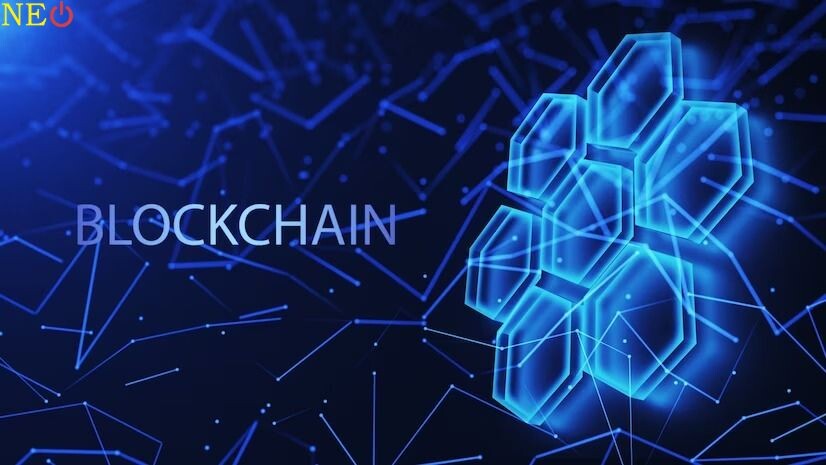Originally connected to cryptocurrency, blockchain technologyhas developed into a disruptive force in other industries. Although digital currencies like Bitcoin and others were innovators, the underlying blockchain technology has shown to be flexible, safe, and able to change conventional procedures. We'll examine the applications of blockchain technology outside of bitcoin in this blog article.
Knowing the Fundamentals
In essence, a blockchain is a distributed, decentralized ledger that keeps track of transactions via a network of computers. To create an immutable record, each transaction is added to a block, which are subsequently connected chronologically. Because of its structure, which guarantees accountability, security, and transparency, blockchain technology is a great option for uses outside of cryptocurrency.
- Intelligent Contracts: Autonomous Contracts
Smart contracts, which make use of blockchain technology, are self-executing contracts with terms written directly into code. These contracts don't require middlemen because they automatically execute when certain requirements are met. This breakthrough has significant ramifications for the real estate, legal, and supply chain management sectors. Smart contracts simplify procedures and increase transparency, which increases productivity and lowers the possibility of fraud. By ensuring quick and dependable agreement execution, their automated nature transforms conventional contract administration techniques and opens the door for safer and more effective transactions in the digital age.
- Supply Chain Management: Increasing Traceability And Transparency
Supply chain management is revolutionized by blockchain technology, which provides unmatched transparency and traceability. Blockchain lowers the risk of counterfeiting and improves accountability by securely tracing products from point of origin to consumer. Companies use blockchain to verify ethical sourcing methods, track the origins of raw materials, and guarantee the legitimacy of their products. Blockchain's unchangeable ledger promotes confidence among participants and makes it possible to easily verify each transaction in the supply chain. In addition to reducing risks, this openness promotes an ethical culture that increases productivity and sustainability across the whole supply chain ecosystem.
- Financial Services Transformation through Decentralized Finance (DeFi)
Decentralized Finance (DeFi) creatively uses blockchain technology to imitate regular financial services without the need for centralized authorities. By using smart contracts to access lending, borrowing, and trading services directly on the blockchain, users can avoid using traditional banks. People can now have more control over their assets and enjoy more financial inclusion as a result of the democratization of finance. Through the removal of middlemen and the facilitation of peer-to-peer transactions, DeFi improves accessibility while simultaneously advancing efficiency and transparency within the financial ecosystem. DeFi is a disruptive force that is changing the traditional banking landscape, creating new opportunities, and empowering people all over the world.
- Securing Patient Information And Streamlining Procedures in Healthcare
Blockchain technology shows up as a strong answer in the healthcare industry, where data security is crucial. Sensitive data is protected in patient records on the blockchain by encryption and limited access, which guarantees confidentiality and integrity. Blockchain also facilitates data sharing between healthcare professionals, which lessens administrative work and enhances patient care. Through the utilization of blockchain's intrinsic security characteristics and decentralized structure, the healthcare sector can optimize data safeguarding, rationalize procedures, and ultimately provide patients with more effective and secure healthcare services while adhering to strict regulatory guidelines.
- Identity Management: Fortifying Virtual Personas
Blockchain transforms the verification process by offering a safe and unchangeable digital identity management solution. Companies can expedite the identity verification process to guarantee quick and trustworthy authentication. People have more control over their personal information, which improves security and privacy. Numerous uses for the technology exist, such as access control, which smoothly allows approved admission. Furthermore, blockchain technology has the potential to improve voting procedures by providing transparent and impenetrable election systems. Blockchain's reliability also helps with online verification, reducing the possibility of fraud and identity theft. All things considered, blockchain fortifies digital identities, enabling companies and people alike to thrive online.
- Streamlining Property Transactions in Real Estate
Real estate transactions can include numerous parties, copious amounts of paperwork, and inherent fraud concerns. By offering an unchangeable and transparent record of property ownership and transactions, blockchain technologyoffers a revolutionary alternative. Every transaction is safely recorded using blockchain, producing an unchangeable record that improves openness and confidence in the real estate industry.
Blockchain-powered smart contracts are essential to simplifying real estate transactions. These self-executing contracts minimize the need for middlemen and the likelihood of mistakes or disagreements by automatically enforcing the terms of the agreement. Smart contracts provide increased speed and accuracy in real estate transactions by automating procedures like escrow agreements and title transfers.
Additionally, the transparency that blockchain provides lessens the possibility of fraudulent activity, improving security for suppliers, buyers, and other parties. All things considered, blockchain technology has the potential to completely transform the real estate sector by accelerating, securing, and enhancing the dependability of property transactions for all stakeholders.
- NFTs and Digital Assets in Gaming and Entertainment
The gaming and entertainment industries are undergoing a revolution thanks to the introduction of Non-Fungible Tokens (NFTs) on blockchain. By utilizing the special qualities of blockchain technology, NFTs make it possible to verify who owns digital goods, such as artwork, collectibles, and in-game items. The unique digital assets represented by these tokens are safely kept on the blockchain, guaranteeing ownership transparency and immutability.
The digital economy has entered a new era thanks to this innovation, which has given consumers and artists alike hitherto unheard-of chances. Tokenizing their digital works enables creators to open up new revenue sources by enabling them to be bought, sold, and traded as NFTs. In the meantime, customers can benefit from improved ownership experiences since they can securely and decentralized demonstrate the provenance and validity of their digital assets.
Because of the transformational power of NFTs and blockchain technology, the gaming and entertainment sectors are experiencing a boom in innovation, economic activity, and community engagement.
Bottom Line
Since it was initially linked to cryptocurrencies, blockchain technology has advanced dramatically. Its decentralized, transparent, and safe properties make it a powerful instrument for transforming a range of businesses. Blockchain technology is revolutionizing traditional methods, fostering creativity, and enabling individuals across diverse sectors such as supply chain administration, healthcare, smart contracts, and decentralized banking.
Frequently Asked Questions
1. Describe smart contracts and explain their operation.
Smart contracts, which make use of blockchain technology, are self-executing contracts with terms written directly into code. Smart contracts do not require middlemen because they automatically execute when predefined circumstances are met. In sectors including supply chain management, real estate, and law, they simplify procedures, improve transparency, and lower the chance of fraud.
2. What is DeFi (Decentralized Finance) and how does it make use of blockchain technology?
Using blockchain technology, Decentralized Finance (DeFi) seeks to mimic traditional financial services without the need for centralized authorities. Through smart contracts, users can access lending, borrowing, and trading services directly on the blockchain, eschewing the need for traditional institutions. DeFi encourages efficiency, transparency, and financial inclusion throughout the financial sector.
3. What part does identity management play for blockchain technology?
Blockchain provides a safe and unchangeable identity verification method, which enhances digital identity management. Access control and online authentication are made easier, privacy and security are improved, and identity verification procedures are streamlined. Blockchain has the potential to transform voting procedures and reduce fraud and identity theft risks.
4. How do NFTs affect the entertainment and gaming sectors?
Non-Fungible Tokens (NFTs) are transforming the gaming and entertainment industries by enabling verified ownership of digital assets. Tokenizing their digital works allows creators to access new sources of income, and it also gives customers a better sense of ownership. NFTs take advantage of the immutability and transparency of blockchain technology to stimulate economic activity, creativity, and community involvement in the digital economy.









